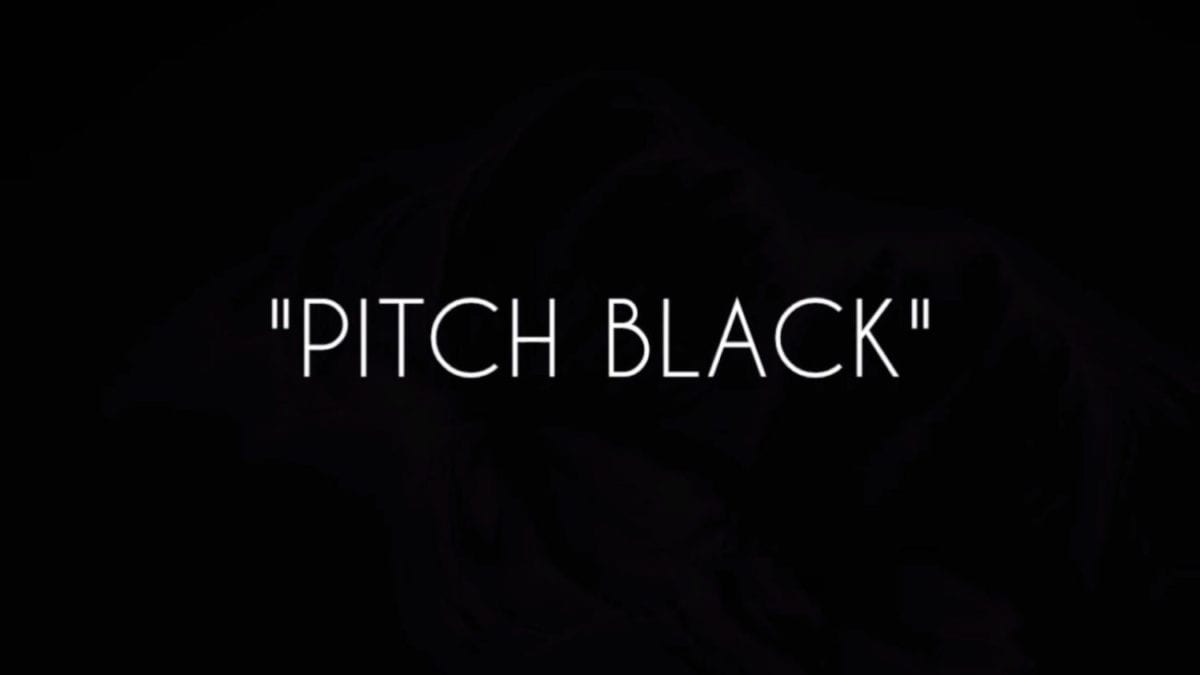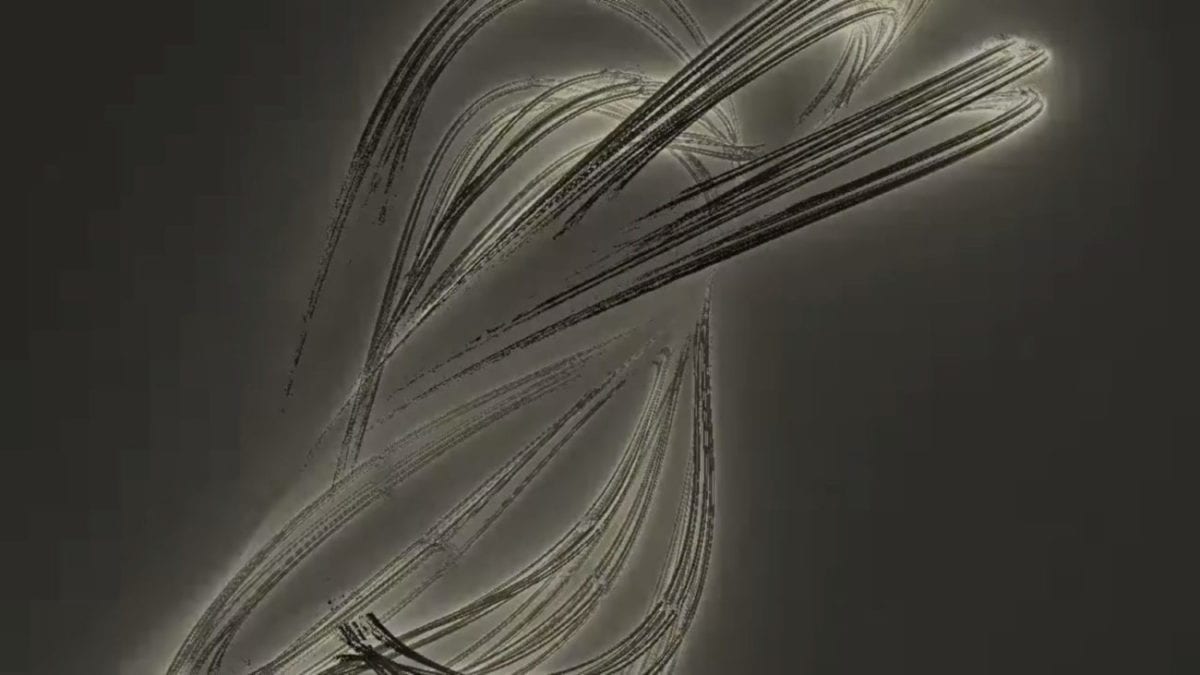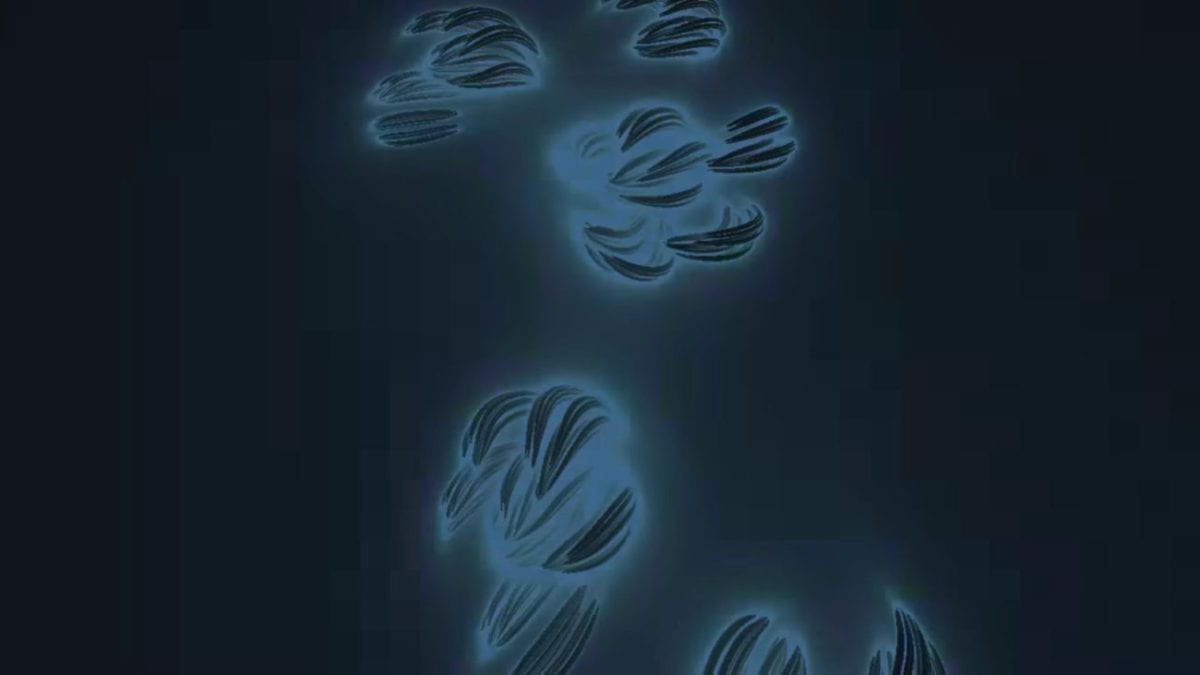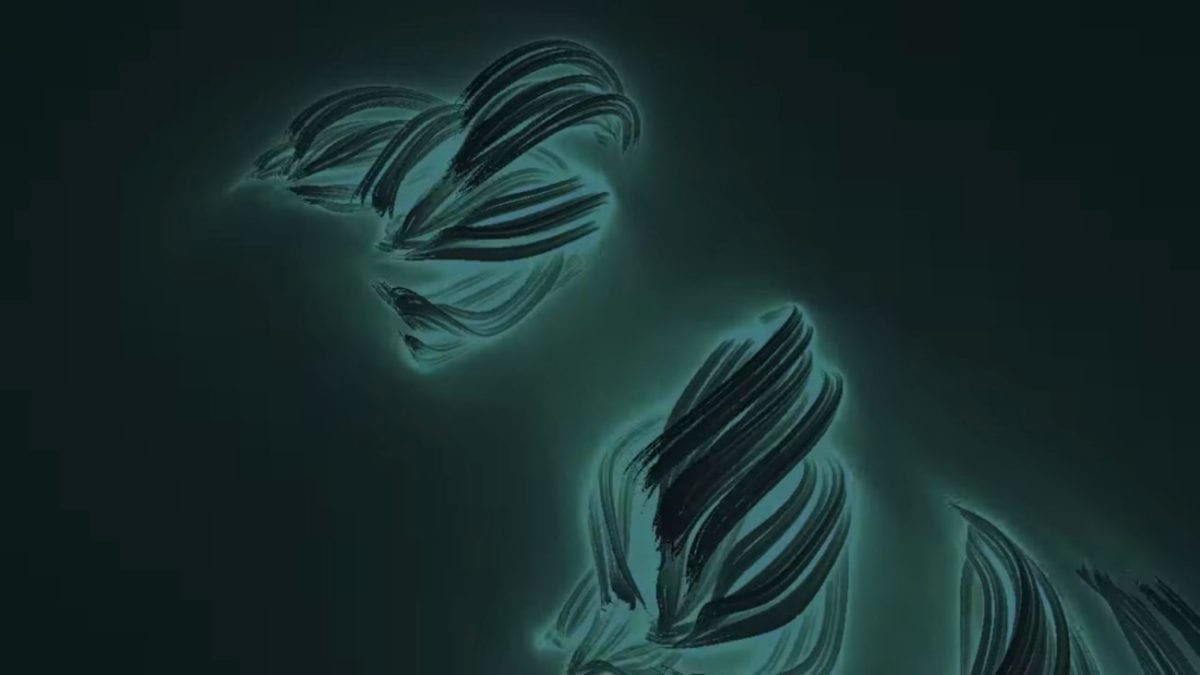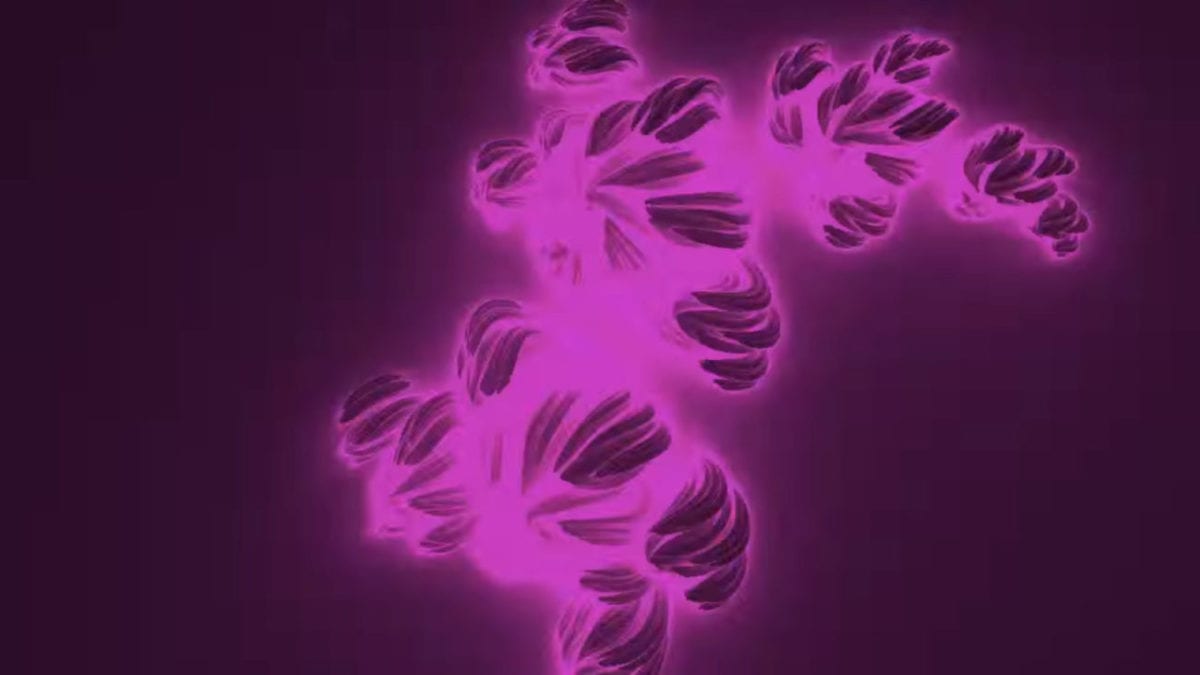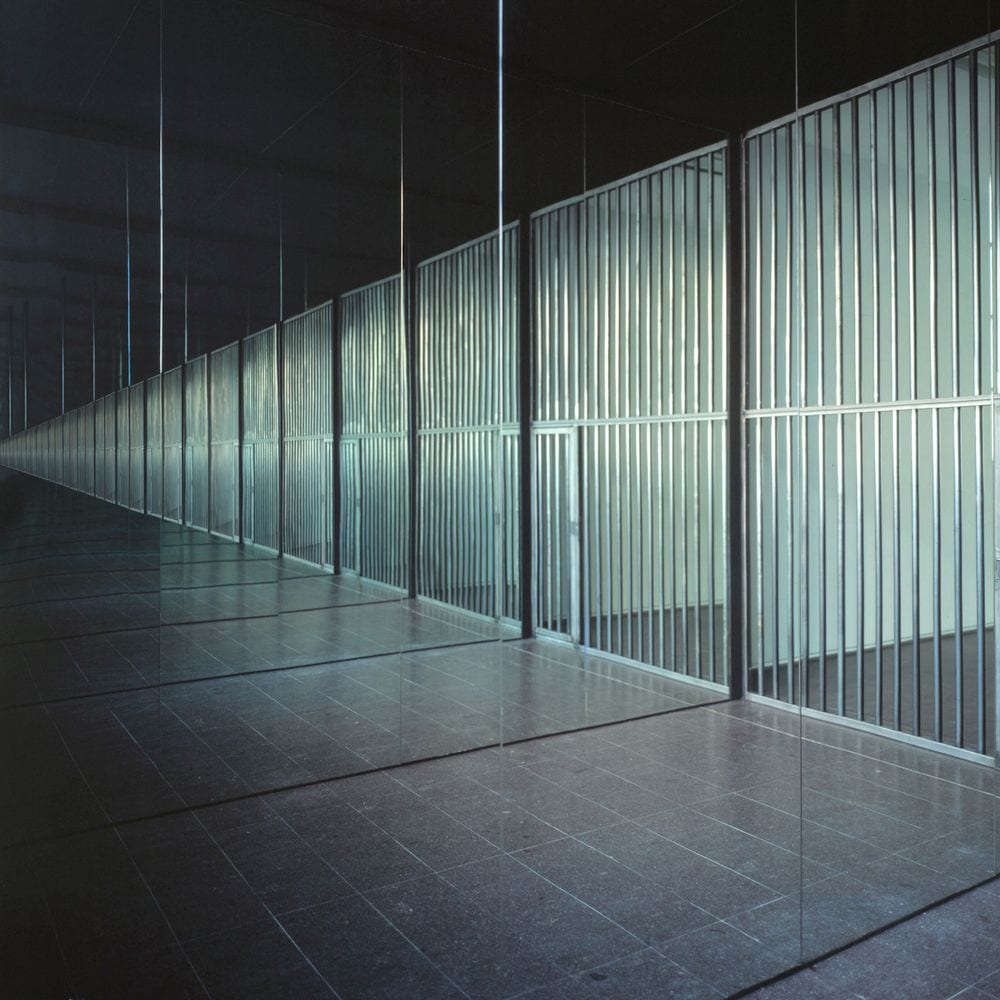
Whether pushing for ‘brutal-prog’ electronics with genre-busting, avant-garde music group Zs or experimenting solo the infinite possibilities of a simple guitar with a few FX pedals, New York-based composer Patrick Higgins has settled as one of today’s most impressive and fearless sound architects. Dedicating himself to pushing the boundaries of electronic music as did his most notorious predecessors György Ligeti and John Cage with classical music, Higgins keeps driving the common rhythmic/melodic acceptations of our time into the corner, shattering the unyielding myths and misconceptions attached to the notions of harmony and dissonance on his way.
Easy-listening lovers, go your way. Higgins’ latest LP, ‘Dossier‘, freshly out on Nicolas Jaar’s Other People, further explores the most remote and uncharted of sonic territories, “engaging with the alienation and inner emotional economy of contemporary digital life, its politics, erotics, and violence” as the label accurately puts it. Eager to find out more about this compelling piece of left-of-centre sound dialectics and thought-provoking narratives – which proves to be one of Higgins’ most accomplished works to date, we caught up with Patrick to discuss his unique approach to guitar playing, influences and moving the lines. Watch the video for ‘Pitch Black‘ down below.
Interview by Baptiste Girou
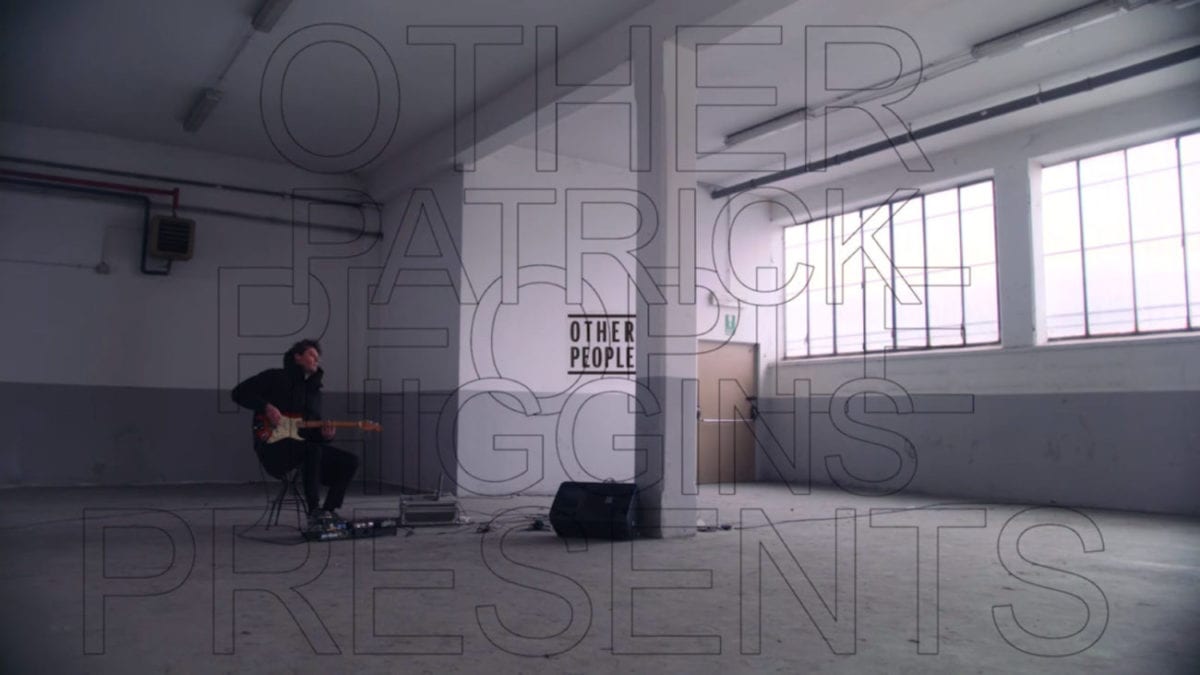
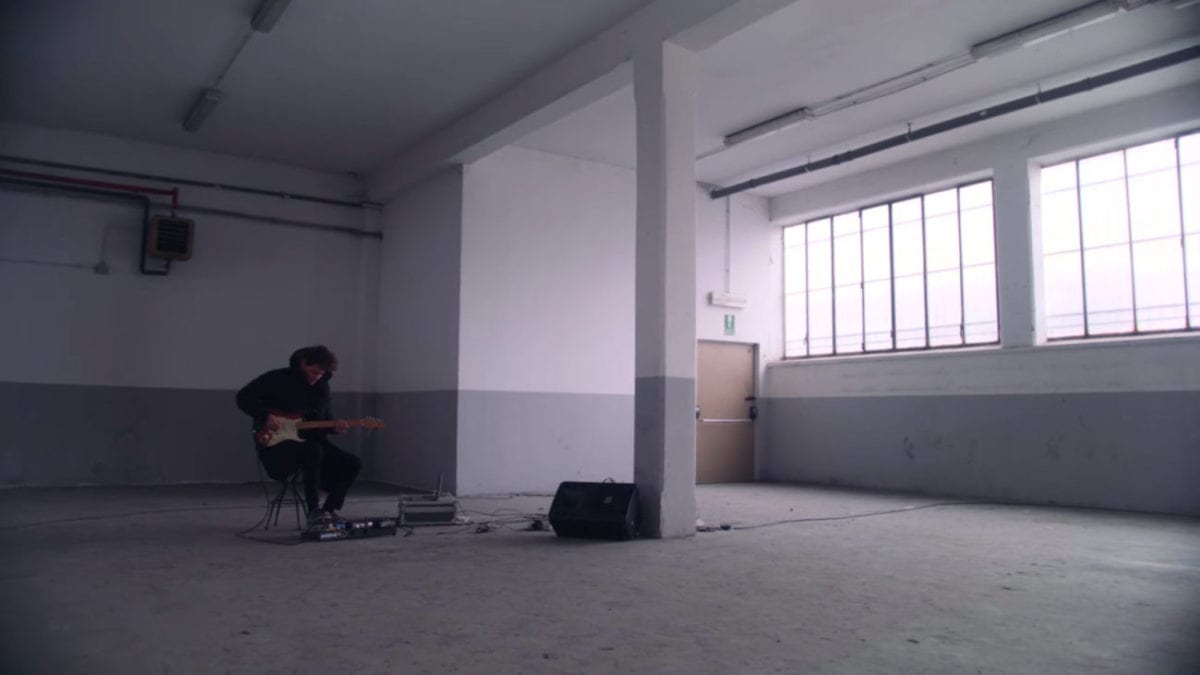
"The guitar works as an extension of my physical being into a sort of analog-digital-computarized apparatus or environment, in which I am both generating and pushing back against the electronic processes in the music."
Your new record ‘Dossier’ is about to come out on Nicolas Jaar’s imprint, Other People. Can you tell us more about its roots and shoots? What is the main concept behind the LP?
The material on ‘Dossier‘ is the result of many years’ work developing a unique technical and performance practice for guitar playing. Starting in 2012 I began to integrate both analog electronics and digital computer processing into my guitar work – over many many live shows and recording projects in the intervening years I refined and focused the rig to the point that it became integral to a new kind of expressive form in my playing.
The specific material on this record was developed over a two year period of writing and touring, both in the US and in Europe, and in early 2017 I felt that the work had cohered into a specific vision, which is realized on this recording. I am always interested in pushing the guitar past its traditional limits, avoiding the sounds and idioms most readily associated with the instrument. In this case, the guitar works as an extension of my physical being into a sort of analog-digital-computarized apparatus or environment, in which I am both generating and pushing back against the electronic processes in the music.
The guitar sends out an analog signal that runs through a stereo rack of pedals and synths, but it is also linked wirelessly to a laptop, where it operates as a MIDI controller, allowing me to trigger samples that are mapped onto the frets of the instrument (all custom recorded samples, like voice, stomps, percussive clangs, and other elements) and also to manipulate patches in various software applications.
The technical setup in this way also relates to the conceptual thinking behind the record: a meditation on and engagement with the network systems of data mining and information organizing that increasingly come to “define” us and yet over which we have very little control, or even access to. It is both a lament and confrontation. An engagement with an overwhelming system that attempts to find a kind of poetics to articulate or illuminate the dark networks we are all caught up in.
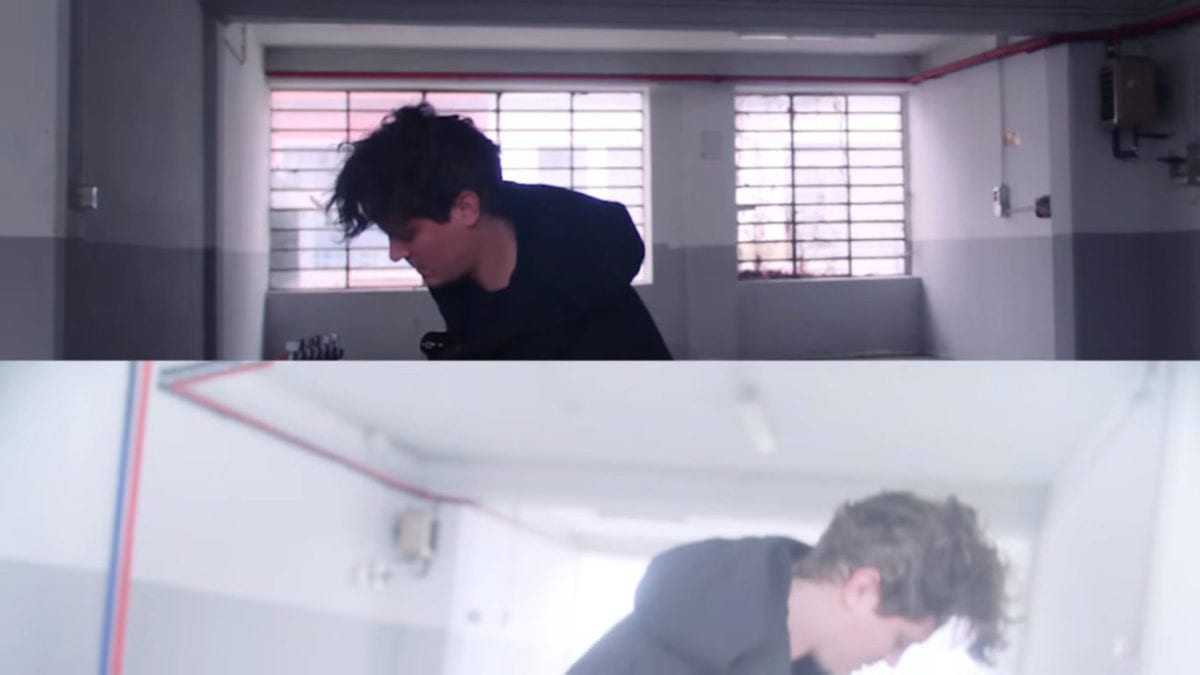
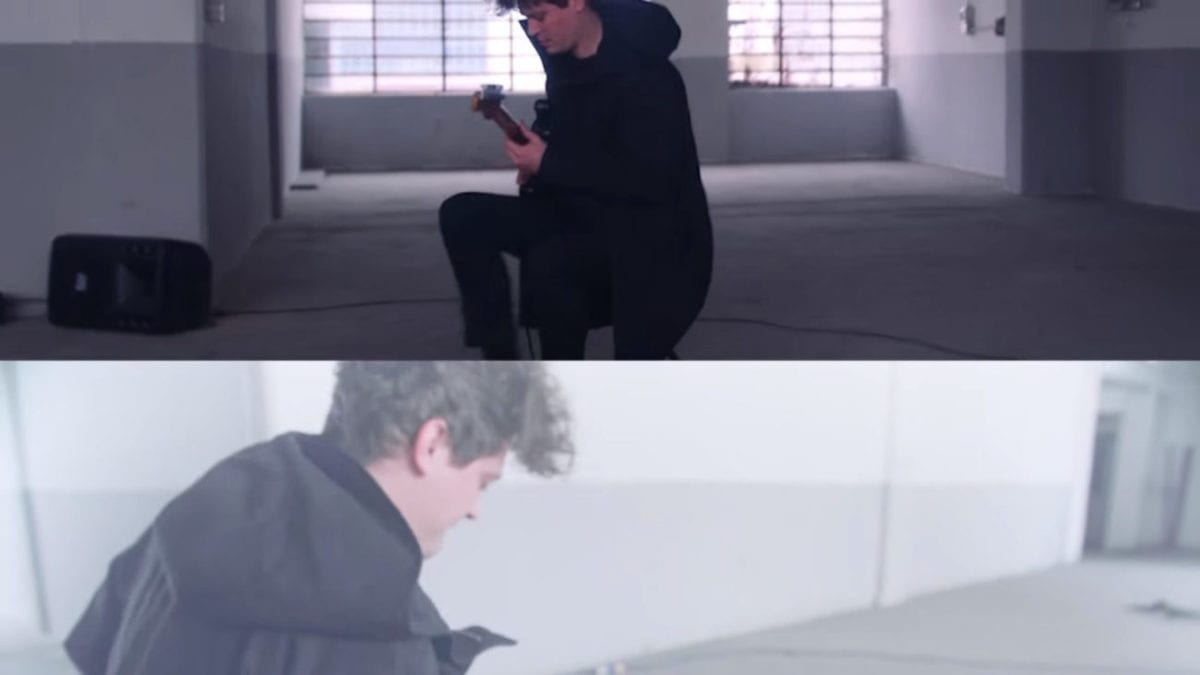
"I am interested in electronics no more or less than I am interested in a violin or a cello or a block of wood - the question is about the urgency of the vision, what we aim to bring into the world through these instruments that does not yet exist."
How did you and Nicolas initially get in touch?
Nicolas and I met through the New York music scene, and played privately together a few times. We also performed a show together at The Kitchen in NYC and began a conversation about this record in the context of having become friends and mutual admirers of each other’s work.
Whether making music in ‘brutal-prog’ group Zs or recording solo, you have always dedicated yourself at shifting the lines; establishing a sound both thought-provoking and boundless, whilst smashing down all types of rhythmic/melodic rules and limitations. How do you envisage today’s electronic music landscape? Do you think too many contemporary producers/musicians perhaps lack a sense of nerve and boldness when it comes to studio creativity?
For me it is always a question of music making first. That is to say, the “rules” and “limitations” of traditional musical forms operate in a similar way to the structures and restraints of electronic instruments, like sequencers or synthesizers: they are often constraints because they are so tied to function. There are certain things they are good at doing, but it is often too easy simply to be trapped by them and perform their operations, to not see past the technology.
It is much harder to envisage ways to transform them, or to destroy their intended use in the name of a different sort of vision – but this is exactly what innovative music makers and artists have always done. By seeing past the basic or established function of their tools, their work winds up transforming both the aesthetic field of the discipline and liberating new usages of its instruments and tools.
I am interested in electronics no more or less than I am interested in a violin or a cello or a block of wood – the question is about the urgency of the vision, what we aim to bring into the world through these instruments that does not yet exist. In other words, the need to see beyond a set of tools and work instead to envision a quality or property of sound that cannot be readily located anywhere, to forge that location; this a question that goes beyond genre or style, it allows for the work to establish itself in a new terrain. At least this is how I often feel it: I am interested in what does not yet exist.

"The compositional method of 'Dossier' works by establishing a series of terrains, or landscapes, or modules, that proceed through differing levels of intensity, width, density, and so on."
As mentioned in the press release, ‘Dossier’ is made of “guitar and live custom electronics, all original programming and live sampling using midi triggers mapped to the guitar”. Can you explain us a bit further how you proceeded exactly? Were these fully improvised sessions?
These were not improvised sessions actually – the compositional method of ‘Dossier‘ works by establishing a series of terrains, or landscapes, or modules, that proceed through differing levels of intensity, width, density, and so on. Inside of or across or within these terrains, I have a series of musical gestures that can be articulated and configured and variated: this element is somewhat improvisatory, but I think of it more as being “flexible” than as being “of the moment”.
The fact that none of the electronic elements are sequenced is also an important part of this. Everything happens because it is executed in realtime, it is played, and naturally there are elements of spontaneous decision making that enter in. But overall the musical materials are very precisely chosen and developed.
Across the record, the other impetus was to create a highly narrative and patient engagement with these different materials, allowing individual elements (whether “concrete” or thematic) to appear and disappear, only to return into a changed context, thereby further changing the continuing arc of the narrative. The record is written and envisioned almost as a single piece of music, realized in four movements.
The only movement which differs somewhat from this process is the final section ‘White Lie‘ – which is more through-composed in a traditional sense. As it is the only movement with traditional tonal harmony and pitched notes, it naturally assumes a more through-composed structure. It is highly composed but never rigid.
How important is this live feel/spontaneity to you?
In a studio context, very! This is often the hardest thing to capture in a studio recording. The commitment to a “perfect” or “accurate” representation of the musical idea can sometimes become so rigid that the sense of spiritual or aesthetic spontaneity is missing – I guess for lack of a better word, the “passion” of a work. I try whenever possible to make all of my records as continuous performances, which helps to drive me up to and often past my own limits as a performer.
This doesn’t hold true for every situation of course, it really depends on the goal of the work; sometimes patient editing and overdubbing and post-production work is exactly what a record needs to best realize its vision. But in the case of ‘Dossier‘, yes, absolutely. I wanted to make the electronic element as expressive as possible. This is hard for a machine, so I felt I had to have the studio work be grounded in performance.
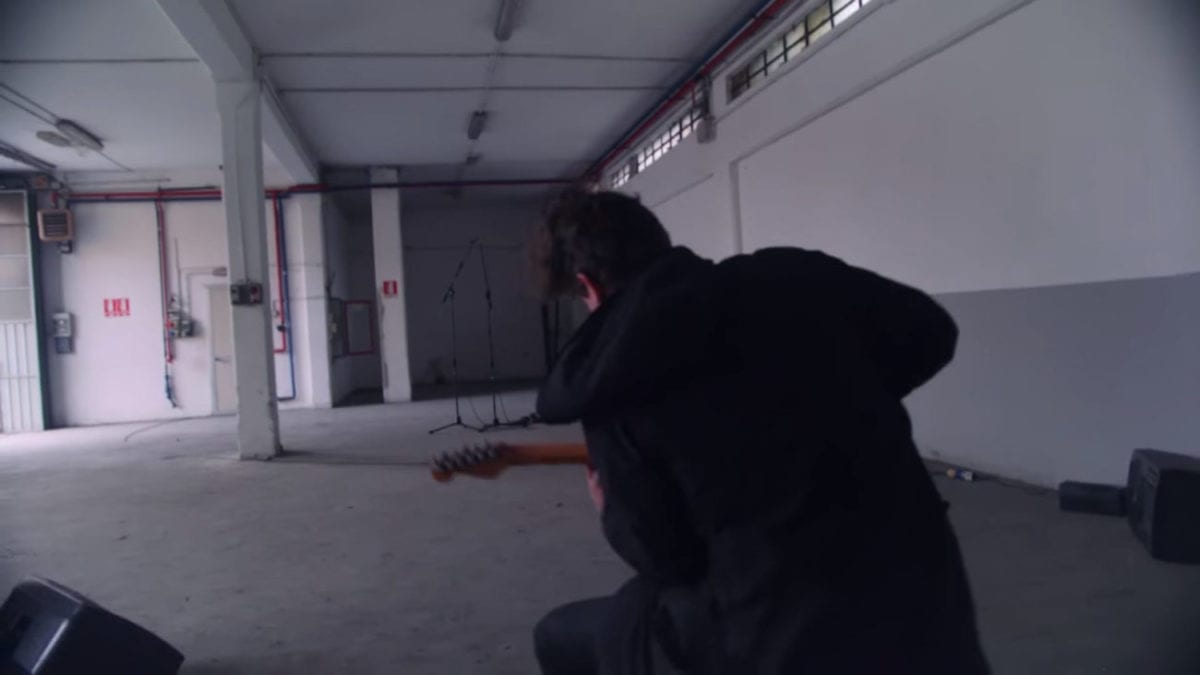
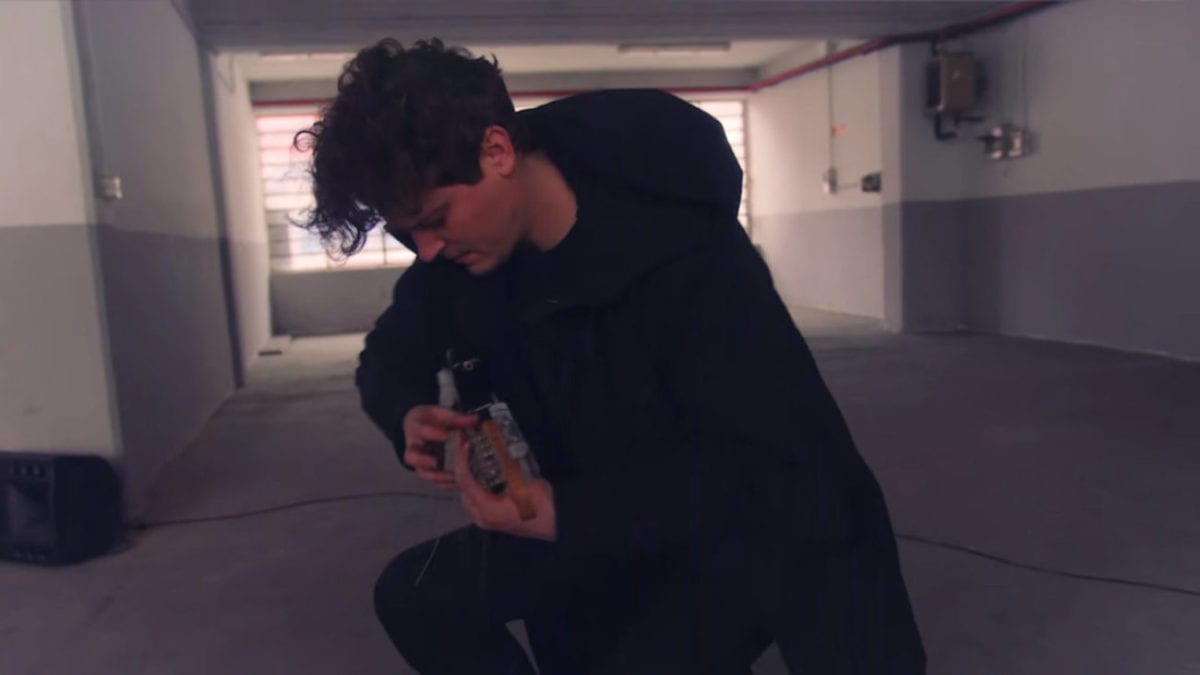
"I believe music has a special capacity to transcend, to very quickly push past language and ego and open up our innermost selves."
‘Avant-garde’ is a word often used to define your music, which may be a bit blurry sometimes. Do you feel you belong to this category?
I suppose so, but it’s perhaps misleading… it’s also historically a term derived from military language, which I’m not so into. But in general I find the categorizing impulse and genre question to be less productive for me… I work in “classical” music, in “electronic” music, in “modern” music, in “post-rock” in “post-minimalism”… pretty soon they all pile up and seem to be more confusing than helpful. Avant-garde, I guess, is slightly better since it suggests an on-going engagement with a frontier, rather than a style or a genre. I like that thought. So yeah it’s a mixed bag, haha.
Which artists/musicians had the most impact on your vision and craft, and why?
This is hard to answer to be honest, but the most truthful thing to say is that the artists who have struggled against the status quo of their era (whether stylistically, politically, technically) are the most important and inspirational to me. The threat of conformity and the tide of popular opinion is a human universal, it has always been there, and for me the greatest artists always seem to use the materials and politics of their day to transcend the conformist threat – to make something dangerous and beautiful.
Hildegard von Bingen, JS Bach, Beethoven, Arnold Schoenberg, Gyorgy Ligeti, Morton Feldman, are all equally inspiring to me as John Coltrane, Charlie Parker, Frank Zappa, Black Fag, Pauline Oliveros and so on. Literary and artistic figures too of course… Also many of my colleagues in the current NY and EU music scene are very important to me. But essentially it’s about those who use their craft to the destroy the status quo: because the status quo is the terrain of war, of bigotry, laziness, all of the ugliest instincts in humanity — confrontational art, I believe, is actually about the struggle for peace because it destroys the status quo.
The press release states that the release is “a consummate and highly unique aesthetic statement, engaging with the alienation and inner emotional economy of contemporary digital life, its politics, erotics, and violence”. What motivates you to question complex socio-logical situations under the angle of music especially?
Both because it is my medium, but also because I believe music has a special capacity to transcend, to very quickly push past language and ego and open up our innermost selves. But it opens us often to something shared, maybe something ancient, maybe something which hasn’t yet been born, but which many of us feel. I can’t imagine making work that doesn’t attempt to that.

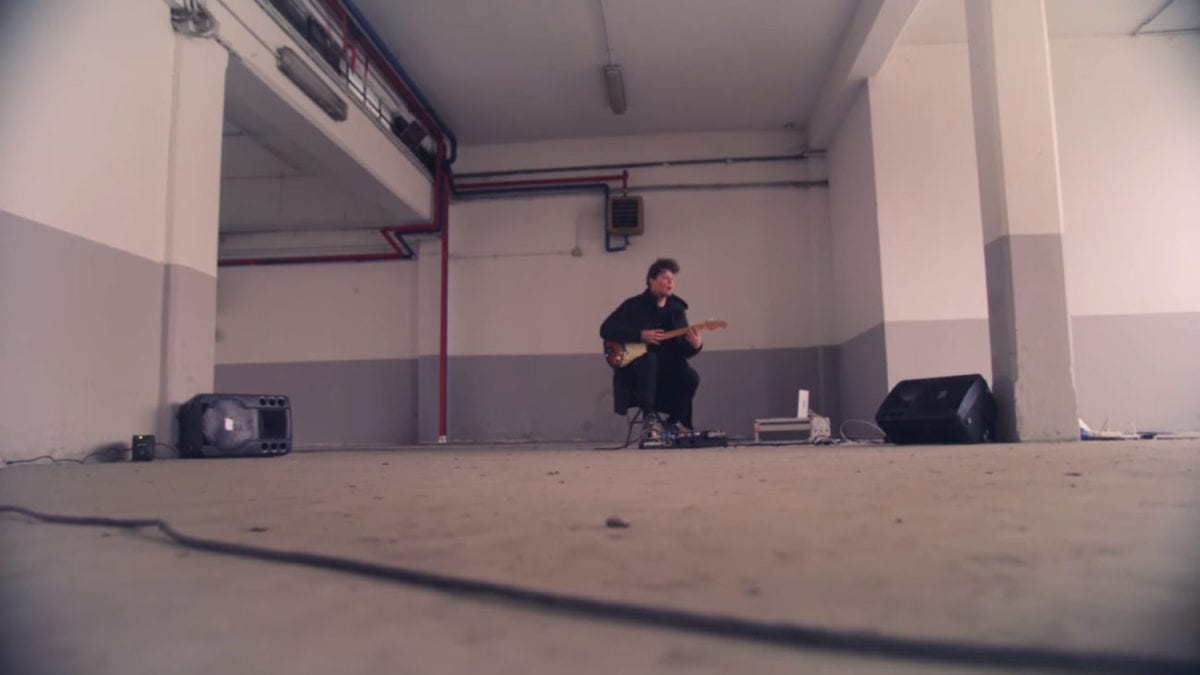
"It's (New York) such a large hectic place, full of strangers and villains and friends and everything you could imagine, including moments of cosmic alienation."
What are the last books/articles you read that left a durable mark on you and why?
There’s been too much over the years to really go into that meaningfully… I love to read, and I used to do it almost all the time, less so in the last year as I’ve been too busy most of the time. That is a shame. But recently re-reading and re-visiting Yeats’ poetry has been wonderful, and I’ve been slugging through the philosopher Peter Sloterdijk’s ‘Bubbles‘ trilogy, which is excellent. Writers like Walter Benjamin, Gilles Deleuze, Samuel Beckett, Thomas Mann, Franz Kafka, and many many more, have been essential to me at points in my life.
Your music has a very urban-friendly feel to it, which echoes NYC’s vibrant day-to-day lifestyle quite electtrifyingly. Where do you usually draw your inspiration from? Is the city and its pulse your main fuel?
No, the city is not my main fuel by any means. I love New York City, I was born here. And the city is absolutely inside of my soul, for sure. But I wouldn’t want to reduce it all to that. NYC has given a lot to my music, but so have thousands of other things. Really more than anything, it’s the been the quality of the musicians and artists in the city over the years that has pushed me the most. And the surprising alienation of it all too… it’s such a large hectic place, full of strangers and villains and friends and everything you could imagine, including moments of cosmic alienation. That is fascinating to me, and that is certainly in there somewhere.
What makes you happy on a general basis?
The next project, always. Also, friends and family and food, and my cat.
What does irk you most?
So much!
Where can we find you this summer?
I just returned from a solo concert tour in Europe at the end of May, so I’ll be around New York for most of the summer, playing concerts and working on the next steps.
Dossier is out now via Other People, order a copy from the label’s website.
TRACKLIST
A1. Flat File
A2. Pitch Black
B1. Redaction
B2. White Lie
Discover more about Patrick Higgins and Other People on Inverted Audio.
